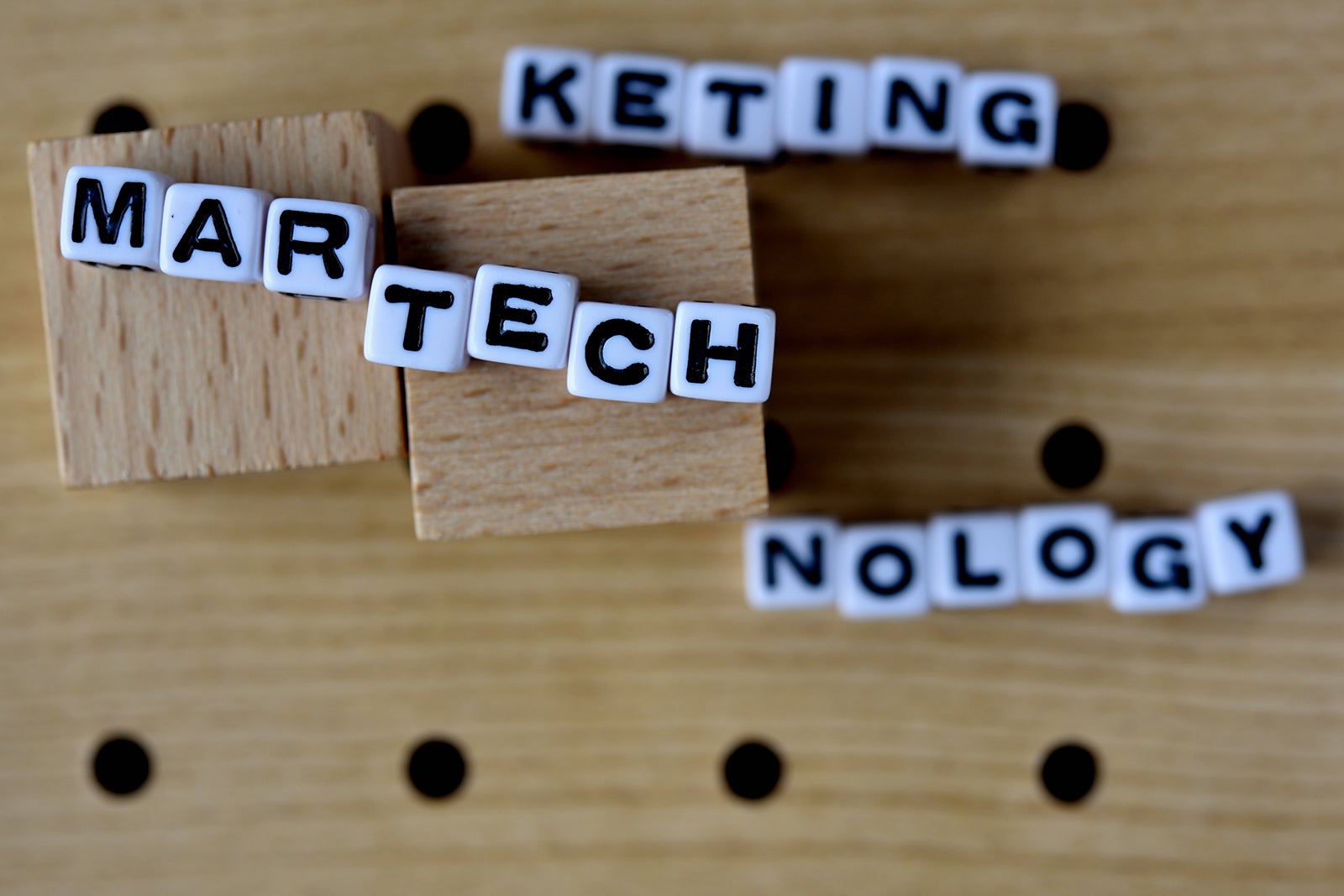
Since the beginning of digital marketing, there was marketing technology. Makes sense, right?
The blending of marketing and tech became known as martech, thanks in the main to the widely-accepted forefather Scott Brinker, and its importance in creating unique digital marketing experiences is worth its weight in gold.
Indeed, Accountancy firm BDO and Warc last year estimated that UK and North American brands now spend an average of 26% of their marketing budget on martech, while the global martech market is worth $121.5bn.
As the aforementioned Brinker stated at the State of MarTech 2018 forum: “Everything that marketing is doing now is being implemented by some kind of technology. The average marketer uses 100 different pieces of software in a given month.”
There are still blurred lines between what constitutes marketing technology that we all use, and the specific martech industry. Ultimately it is the transition from traditional marketing – market research, advertising, promotion, user management – to the combination of data and technology.
Namely, rather than email bombardment, martech offers data precision, thereby pushing the most appropriate content to the appropriate people and minimising the process of uninterested users being interrupted.
How well do you really know your competitors?
Access the most comprehensive Company Profiles on the market, powered by GlobalData. Save hours of research. Gain competitive edge.

Thank you!
Your download email will arrive shortly
Not ready to buy yet? Download a free sample
We are confident about the unique quality of our Company Profiles. However, we want you to make the most beneficial decision for your business, so we offer a free sample that you can download by submitting the below form
By GlobalDataThe power of martech is clear: it allows companies to understand exactly what is happening at each crucial intersection of the marketing campaign, which leads to ultra-customisation for the ultimate beneficiary, the customer.
Put simply, martech helps nurture leads via whichever platform is being used and allows businesses access to vital data, giving them a much-desired 360 view of the market across all industries.
But more than that, it generates more relevant and interesting content that suits the needs and demands of customers. And since research confirms that users read an average of 4.75 pieces of content before signing up/downloading*, then the power of martech is unquestionable.
At the heart of martech – and the clue is really in the name – is the technology. It is vital for all CMOs to embrace these innovations, as what were onces buzzwords – IoT, AI, XR – are realities in modern marketing solutions.
After all, 5G is upon us, which will mean a further evolution for the marketing industry and the technology used within. As Kristiana Carlet, VP EMEA at Verizon Media, explains:
“As we move towards a 5G world, connectivity will mean huge data transfers allowing real-time immersive experiences across digital experiences, meaning virtual reality, augmented reality, all XR experiences will be able to be streamed by millions around the world at the same time, in real-time.
“Think of the impact on virtual events, retail experiences, interactive entertainment. When you combine that with Mobile Edge Computing that will allow VR/AR glasses to look more like a pair of Ray Bans because they won’t need computers inside them to connect to the network, it will mean the tipping point for people to adopt these types of XR-enabled devices.
“Smart marketers are already thinking about how their brand experiences can work in Extended Reality, which is proven to be highly engaging for consumers.”
So there we have it, martech is key to the future of marketing, officially.
* Research conducted by New Statesman Media Group



